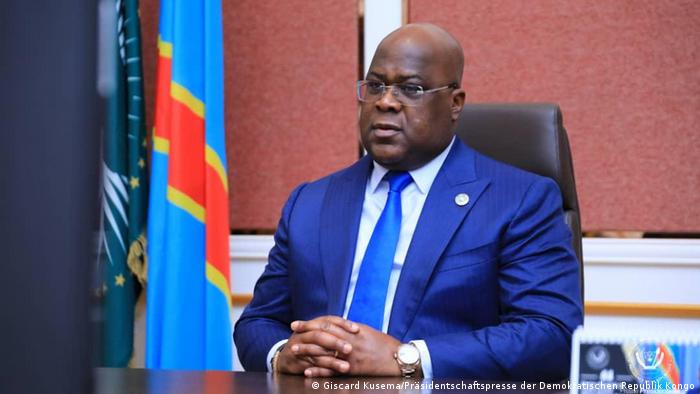DR Congo President Calls For “General Mobilisation” Seeking Out “Traitors”
In a move that has alarmed observers, Felix Tshisekedi suggested “traitors” would be “exposed”, prompting fears of vigilante groups roaming the streets.

Congolese people could help the government identify “civilian or military traitors” who may be helping rebels, President Felix Tshisekedi of the Democratic Republic of Congo has suggested.
The president called for a “general mobilisation” of the public to resist the advances of the rebels and “expose traitors”, in a presidential statement on Nov 2, but left the details of what that meant vague.
Fighters from the March 23 (M23) rebel movement, supported by the Rwandan army, continue to make significant gains in the eastern part of the country.
In a televised address to the nation President Tshisekedi said he was speaking to the nation within a context of “aggression and occupation of territories in the east of North Kivu by the terrorist group called M23 with the support in men and logistics of Rwanda”.
“This is the occasion to put on guard all the traitors and other wretched of the earth who serve the interests of the enemy, that they will be exposed to the rigour of the law and receive the treatment reserved for this kind of comportment”, President Tshisekedi declared.
The move has caused concern. French newspaper Liberation said it brought up the image of “vigilante groups”.
Congolese political analyst Tresor Kibangula tweeted this announcement was “delicate”.
“It is true that it remains very vague,” Kibanglua said. “It is a slippery slope. Admittedly, the presidential speech could encourage young people to join the armed forces but the other side of the coin is “delicate”. People may start patrolling at night with sticks to help the army
President Tshisekedi went on to accuse Rwanda of “expansionist intentions with the principal interest of appropriating our minerals”, adding that Rwanda “is actively destabilising eastern Congo in order to create a lawless zone with the view to satisfying its criminal appetite”.
But President Tshisekedi also used the address to call on Congolese citizens not to assume someone was guilty just because they had Rwandan family or connections. They should not listen to xenophobic language and other hate speech or the stigmatization of Congolese of Rwanda descent, the President said.
In Rutshuru over 200,000 people had been forced to flee their homes as they suddenly found themselves in a combat zone, the Congolese leader said.
Since June 13, M23 rebels have been occupying the strategic town of Bunagana on the border with Uganda and have since captured two other localities in Rutshuru territory.
Support Our Journalism
There are millions of ordinary people affected by conflict in Africa whose stories are missing in the mainstream media. HumAngle is determined to tell those challenging and under-reported stories, hoping that the people impacted by these conflicts will find the safety and security they deserve.
To ensure that we continue to provide public service coverage, we have a small favour to ask you. We want you to be part of our journalistic endeavour by contributing a token to us.
Your donation will further promote a robust, free, and independent media.
Donate HereStay Closer To The Stories That Matter




